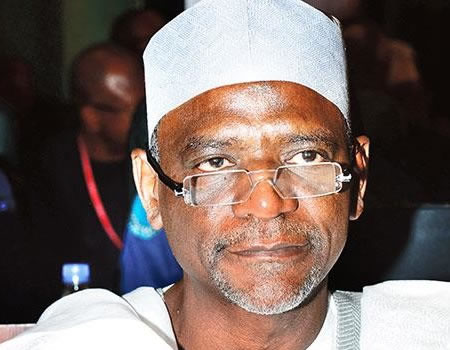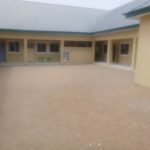The Minister of Education, Malam Adamu Adamu, on Tuesday, appealed to the National Assembly to consider the allocation of 15 per cent to education in the 2021 National Budget in order to take the sector out of the wood.
He also disclosed that about N46 billion was required to complete the multi-billion naira National Library of Nigeria Headquarters building complex, which the construction had begun in 2006 with an initial completion period of 22 months.
Adamu spoke when he received members of the Federal House of Representatives Committee on Basic Education and Services on an oversight visit to the Federal Ministry of Education, Abuja.
The Minister, who lamented poor budget releases as a result of paucity of funds and time constraints, said the Ministry was only able to achieve 40 per cent implementation level of the 2019 budget.
According to him, the total amount appropriated to the education sector in 2019 was 634,557,159,877 with the percentage of capital releases to the sector as 42.96 per cent.
ALSO READ: UNICEF renovates 39 PHCs, supplies health equipment in Bauchi
He told the House Committee members that considering the decay and decadence in the education sector, the lawmakers should consider increasing budgetary allocation to the education to about 15 per cent.
Adamu disclosed that the sum of 84.7 billion was allocated to the education sector in 2020 Appropriation Act, to cater for 19 Parastatals, 43 Federal Universities, 5 Inter-University Centres, 27 Federal Polytechnics, 21 Federal Colleges of Education and 104 Federal Government Colleges.
He noted even though the United Nations Educational, Scientific and Cultural Organisation (UNESCO) recommended 26 per cent, there was the need to compare what Nigeria is allocating to education with some African countries such as Rwanda that allocates about N22 per cent of her budget to education.
He listed some of the challenges impeding quality delivery of education in Nigeria to include, acute shortage of classrooms, hostel accommodation, laboratories and library facilities.
Others are inadequate teaching personnel as well as unqualified teachers, poor and inadequate provision of information and communication technology (ICT) facilities and lack of security infrastructure in schools.
While expressing concern about the high number of out-of-school children in the country, the Minister revealed that government would soon set up an education watch group or task force to ensure that children are in school and to pick up those found on the streets during school hours, locate their parents for arrest and prosecution.
He also urged the State Governors to invest more in basic education and do more to access the matching grant from the Universal Basic Education Commission (UBEC), stressing that the Federal Government would embark on aggressive enrollment drive this year.
On the delay in the completion of the National Library project, Adamu told the House Committee that the complex was yet to be completed due to inadequate budgetary provisions over the years.
He disclosed that in 2019, the sum of N232,078,149 was appropriated to the complex while in 2020, the sum of N232,078,149 was appropriated adding that this amount was grossly inadequate to complete the complex.
He said considering the importance of the National Library to the nation, the Ministry has written to President Muhammadu Buhari to possibly direct the Central Bank of Nigeria (CBN) to invest in completion of the project.
He equally called for the dedication of 1 per cent of the Consolidated Revenue Fund (CRF) to the funding of the newly approved National Secondary Education Commission so as to ensure its take-off while also increasing the UBEC 2 per cent of CRF to 3 per cent to boost the Commission’s intervention effort.
Chairman, House Committee on Basic Education and Services, Professor Julius Ihonvbere, who led the delegation, said the committee was prepared to work with the Ministry in the efforts to move the education forward.
He advised the Ministry to focus on technical and vocational training education (TVET), saying this was how many countries were able to resolve the challenges their unemployment.
WATCH TOP VIDEOS FROM NIGERIAN TRIBUNE TV
- Let’s Talk About SELF-AWARENESS
- Is Your Confidence Mistaken for Pride? Let’s talk about it
- Is Etiquette About Perfection…Or Just Not Being Rude?
- Top Psychologist Reveal 3 Signs You’re Struggling With Imposter Syndrome
- Do You Pick Up Work-Related Calls at Midnight or Never? Let’s Talk About Boundaries






